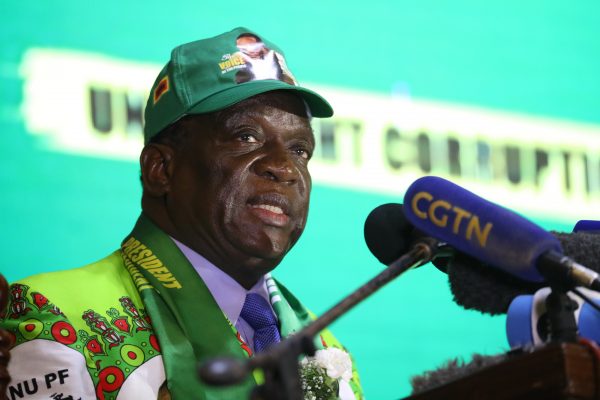
EDITORIAL COMMENT
After initially imploring Zimbabweans to stop moaning about sanctions and channel their energies into rebuilding the country, President Emmerson Mnangagwa has made the embargo a centre piece of his foreign policy.
Mnangagwa’s exhortations during the early days of his presidency were meant to prove that he was different from his predecessor Robert Mugabe, who used the sanctions to explain away his failure to deliver on many fronts.
The new administration has largely failed to live up to its promises to turn around the economy, revive the education sector and health delivery system, among many other areas, and government mandarins are now using the sanctions as a scapegoat.
Last night, the government marked what it calls an Anti-Sanctions Day with a music gala, which is hardly a recognised foreign policy tool to deal with issues such as sanctions.
The authorities are well aware that the messages that the gala was meant to send were not targeted at the European Union, United States or United Kingdom, which are supposedly choking Zimbabwe with sanctions, but for locals and the intention was to give excuses for the government’s failure to deliver.
The anti-sanctions crusade is meant to deflect attention from the real issues confronting Zimbabwe today such as corruption, rampant human rights violations and outright incompetence by its rulers.
Since Mnangagwa took over from Mugabe following a military coup in 2017, Zimbabwe’s human rights situation has been deteriorating.
- Chamisa under fire over US$120K donation
- Mavhunga puts DeMbare into Chibuku quarterfinals
- Pension funds bet on Cabora Bassa oilfields
- Councils defy govt fire tender directive
Keep Reading
Several people have been killed by soldiers during protests and no one has been made to account for the extra-judicial killings.
Opposition and civil society activists are routinely abducted and tortured by state security agents, who seem to be operating with impunity.
The lack of respect for human rights was one of the reasons the world isolated Zimbabwe under Mugabe.
If Mnangagwa was serious about pushing for the sanctions to be lifted, the respect for human rights would have been one of the easiest ways to ending the country’s international isolation.
The conditions set by the countries that imposed restrictions on Zimbabwe can be easily met if the government lives up to its promises to reform.
Zimbabweans know that the economic collapse over the last two decades was precipitated by the deployment of the military in the Democratic Republic of Congo to fight in a war that had nothing to do with this country.
It was worsened by ill-thought-out agrarian reforms and calamitous economic policies under Zanu PF.
Instead of trying to divert attention from these real issues through deceptive campaigns against sanctions, the government must introduce the much-needed reforms and stop behaving like other rogue regimes that are ostracised by the international community.











